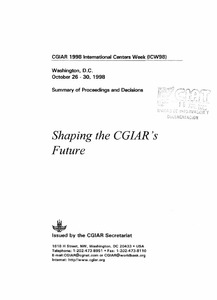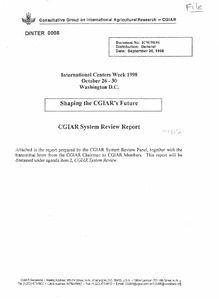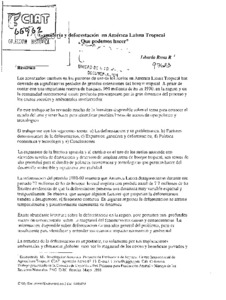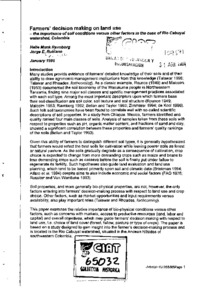Mission
To reduce hunger and poverty, and improve human nutrition in the tropics through research aimed at increasing the eco-efficiency of agriculture.
People
CIAT’s staff includes about 200 scientists. Supported by a wide array of donors, the Center collaborates with hundreds of partners to conduct high-quality research and translate the results into development impact. A Board of Trustees provides oversight of CIAT’s research and financial management.
Values
- Shared organizational ethic
- We respect each other, our partners, and the people who benefit from our work. We act with honesty, integrity, transparency, and environmental responsibility in all of our joint endeavors.
- Learning through partnerships
- We work efficiently and pragmatically together and with partners. Considering our diversity to be a key asset, we adapt readily to change and strive to improve our performance through continuous learning.
- Innovation for impact
- We develop innovative solutions to important challenges in tropical agriculture, resulting in major benefits for the people who support, participate in, and profit from our work.
Members:
Resources
Displaying 561 - 565 of 958International Centers Week (1998, Washington, D.C.). Shaping the CGIAR's future
International Centers Week (1998, Washington, D.C.). Shaping the CGIAR's future
GIS and integrated pest management : Case study for predicting BGMV occurrence in Guatemala, Nicaragua and Honduras
Ganadería y deforestación en América Latina Tropical: Qué podemos hacer?
Short-term trends show that livestock production is becoming an increasingly important factor in regional development, possibly because of the combined effect of increasing the forages on offer and planting crops better adapted to the environmental and economic conditions of marginal areas and the decreasing interest of the State in expanding the agricultural frontier. Overall planning of land use should be improved, but to do so, a more detailed characterization and monitoring of deforestation are essential.






